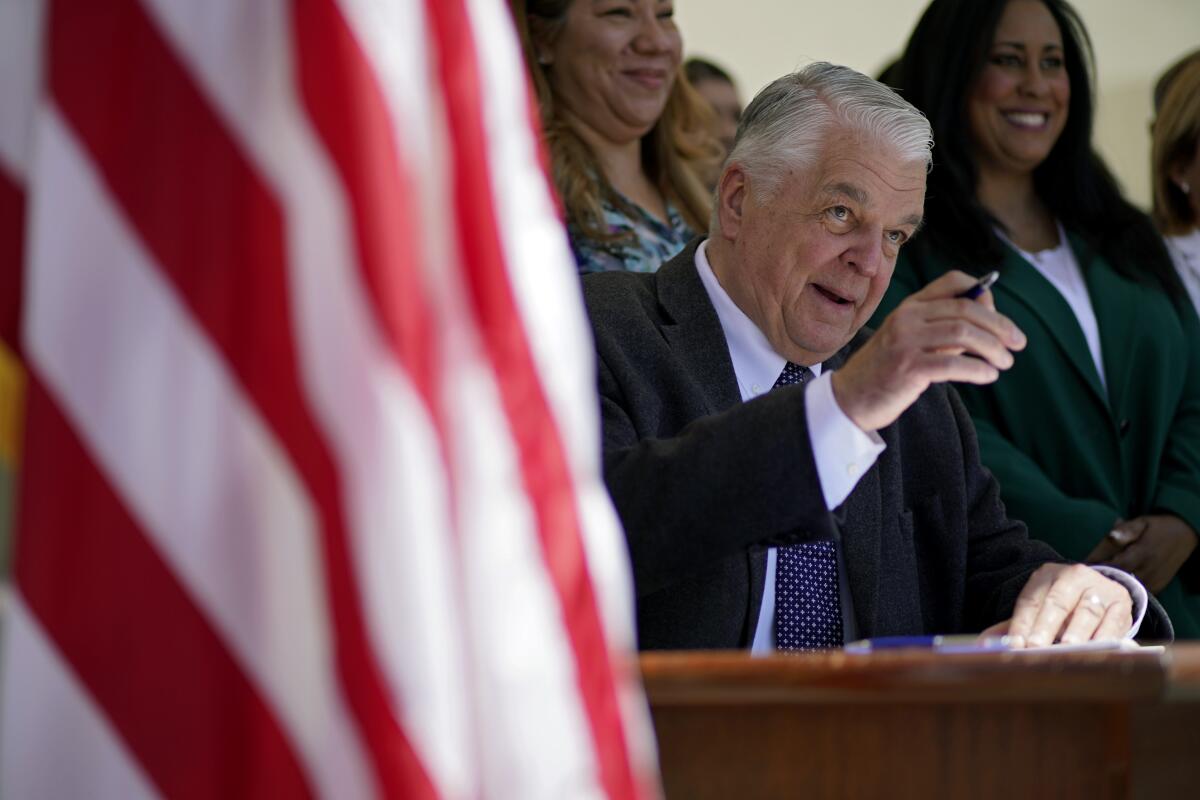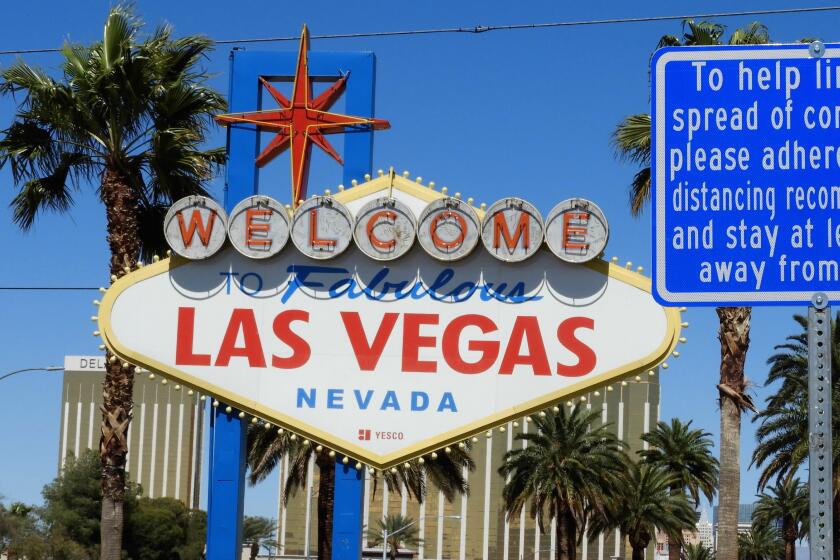New law vaults Nevada to front of presidential primary line, inviting pushback

LAS VEGAS — Democratic Gov. Steve Sisolak on Friday signed a law that would make Nevada the first state to vote in the 2024 presidential primary contests, bumping Iowa and New Hampshire from their leadoff spots.
Signing the law is a gamble.
It’s likely to set off maneuvering by other states, especially Iowa and New Hampshire, to move up their contests. The national political parties would need to agree to changes in the calendar, or state parties could risk losing their delegates at presidential nominating conventions.
The Democratic National Committee has not yet signaled whether it would support the calendar shake-up and isn’t expected to start writing rules for its 2024 nominating process until next year. Republicans in four early presidential nominating states jointly opposed the move this week, saying they’re committed to preserving the historic schedule.
Democrats in Nevada, led by former Senate Majority Leader Harry Reid, launched the push this year to boost their state after the 2020 primary contest left party members questioning the process. They noted Iowa’s problem-plagued caucuses and the fact that the two traditional early states, unlike Nevada, are overwhelmingly white.
Before he went on to win his party’s nomination, President Biden performed poorly in Iowa’s caucuses and New Hampshire’s primary. In Nevada, with a much more racially diverse population that mirrors the U.S. as a whole, he finished second to Sen. Bernie Sanders (I-Vt.).
That gave Biden momentum heading into South Carolina’s primary, which then catapulted him to a string of Super Tuesday victories.
Nevada hopes to jump the line in 2024 to increase its impact. But elections have become more national than local.
The new law changes Nevada’s contest from a party-run, in-person caucus meeting to a government-run primary election. Democrats nationally started shifting away from caucuses to primaries before 2020, citing the difficulty of attending an in-person meeting and the confusing math used to determine who wins the most delegates.
The law will require the presidential primary to be held on the first Tuesday in February in a presidential election year.
“Nevada represents a diverse constituency that presidential candidates need to talk to. It is not just for us. It is for candidates to vet their issues and communicate with the kind of communities that they’re going to be asking to vote for them in the national presidential election,” Jason Frierson, the Nevada speaker of the House who pushed the change, said Friday at a bill-signing ceremony in Las Vegas.
Frierson said he’s confident Nevada can make its case and persuade both national parties to let it go first. He said those conversations have already started and will continue, but he did not offer more details.
Iowa and New Hampshire have signaled they’re willing to fight to protect their status. New Hampshire has a state law requiring its presidential primary to be held at least seven days ahead of any other similar contest. The law also gives the New Hampshire secretary of state the exclusive power to set the primary date.
The state has the only female-majority legislature in the country. The result is reflected in a number of new laws.
Racially diverse South Carolina could make a bid to move up as well, especially after Biden’s breakthrough primary win there. The Southern state is seen as a bellwether for candidates’ abilities to appeal to Black voters, who play a key role in the Democratic electorate. The state has the benefit of one of its own, Jaime Harrison, as the new chair of the Democratic National Committee.
“We are going to continue to let the process play out, as it does every four years, and look forward to hearing the insight and recommendations from all interested parties on the 2020 reforms, and on the 2024 calendar at the appropriate time in the process,” Harrison said in a statement Friday.
Biden has a huge influence on the process as head of the party, but it’s not clear where he stands on shaking up the calendar. The president and Reid do have a long relationship. White House Press Secretary Jen Psaki declined this week to comment on the order of presidential primary contests.
House Majority Whip James E. Clyburn of South Carolina, a mentor of Harrison’s who is also a close ally of Biden’s, told the Associated Press in an interview this month that there is “clear and convincing evidence that having Iowa and New Hampshire create candidate momentum is not a good thing.”
“Those candidates on both sides — Democrats and Republicans — have not fared well when they get into the general elections,” Clyburn said.
Asked specifically about Nevada’s moves, Clyburn said he supported a plan that moved the two traditional first states of Iowa and New Hampshire out of contention, because of what he has characterized as their relatively homogenous makeup. He said that “Nevada can do what it wishes,” but noted the decision is ultimately up to the DNC’s rules committee.
“I don’t have any problems with Nevada being first,” Clyburn said. “I personally, though, have a problem with Iowa being first. Just give South Carolina its shot in the pre-primary window, and I think we can give guidance to the rest of this country as to how we ought to shake out our candidates, and I think that the history proves that.”
More to Read
Get the L.A. Times Politics newsletter
Deeply reported insights into legislation, politics and policy from Sacramento, Washington and beyond. In your inbox three times per week.
You may occasionally receive promotional content from the Los Angeles Times.











